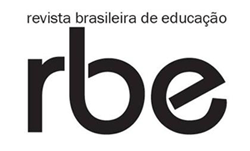The article discusses some aspects associated with the organization of basic education in cycles, considering the initiatives carried out in the public education network and the literature related to the matter. With differences of diverse orders, the implementation of cycles was intensified as of 1996, with the National Law of Education (LDB), and is seen as an alternative to grading and school failure, especially with relation to high reprobation rates and low achievement by Brazilian students. Cycles have also suffered strong opposition and given rise to controversy. From the viewpoint of school democratization, our focus is on the challenge of the equality of results, as a means of strengthening equality of opportunities, which includes tensioning both grading and repetition rates as pedagogical expedients, with emphasis on the school objectives and pedagogical implications imposed by these cycles. Nonetheless, if the cycles cannot be associated with the fall in the quality of education, we consider that, in spite of their enormous democratic potential, the implementation of cycles has not attained the goals proclaimed upon their adoption.
basic education; cycles; grading; democratization of education
